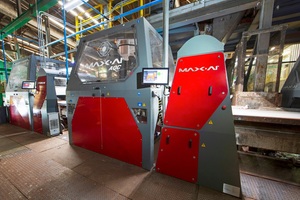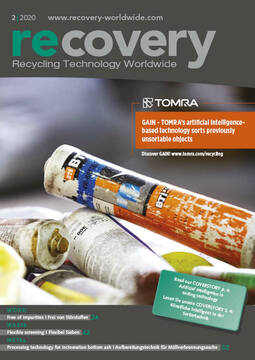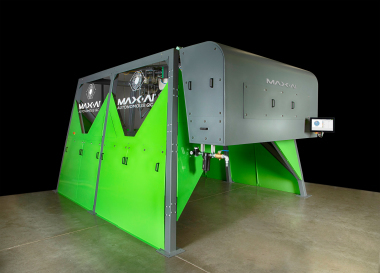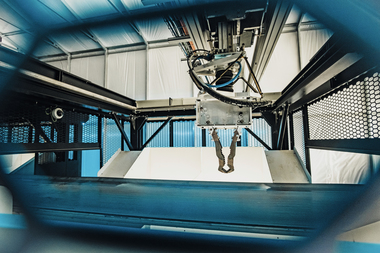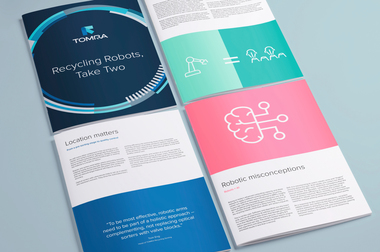The AI-powered robotic sorters increase recovery of recycled materials
San Francisco-based Recology has added four Max-AI® AQC (for Autonomous Quality Control) units and one VIS (for Visual Identification System) to the Recycle Central, a 200 000-square-foot (18 580.6 m2) materials recovery facility (MRF) the company operates on San Francisco’s Pier 96.
One Max-AI AQC unit is in a PET quality control (QC) role to remove contamination and capture non-CRV PET. The other three monitor the plant’s container line to boost recovery, capturing any remaining PET, HDPE and mixed plastics. VIS monitors the outbound residue, providing MRF operators with real-time and trending material composition of outbound material, allowing them to gage performance and adjust the system to optimize recovery.
Four robotic sorting machines are learning to identify different types of plastics, remove them from conveyor belts of mixed materials at rapid speed, and deposit them into appropriate categories for further sorting. “Automation is the next step toward technological advancement in recycling,” said Maurice Quillen, General Manager of Recology San Francisco, the operating company that runs Recycle Central.
“The magic of Recycle Central continues to be people utilizing the latest technology to recycle more materials while producing high-quality bales of sorted recyclables. The robotic sorting machines at Recycle Central will be used to perform some of the dirtier jobs, and employee-owners will be assigned more technical positions, developing new skills needed to manage and maintain high-tech equipment,” Quillen said.
“BHS has a longstanding relationship with Recology as a supplier of MRF systems and equipment,” said BHS Sales Manager Richard Sweet. “We’re thankful that they chose BHS and Max for this important technology upgrade, which is one that the company’s employees and community stakeholders can be proud of. Max is a new technology that allows for new sorting achievements; by adding four Max units to the Recycle Central MRF, Recology continues to show that it’s a company that truly cares about maximizing quality and recovery,” Sweet continued.
Designed and constructed by Recology in partnership with The City of San Francisco, Recycle Central opened in 2002 and serves as key infrastructure in San Francisco’s recycling program, widely recognized as a top program in North America. Recycle Central sorts approximately 750 tons of material every day over two shifts. It is the largest shipper of recycled paper on the West Coast and sends more than 30 shipping containers of recycled commodities six days a week to paper mills, glass plants and other manufacturers that purchase recycled materials to create new products.
Recology is no stranger to innovation. Getting to zero waste necessitates creative solutions for resource recovery. The ever-changing plastic packaging industry has created new and evolving obstacles for recovering valuable commodities like paper and cardboard while low-grade plastics, like candy wrappers and chip bags, still make their way to landfill. Recology investments in robotic sorting, machine learning, and other innovative technologies provide critical opportunities for development of domestic recycling infrastructure. Other strategies for achieving zero waste will include policies like single-use plastic bans and recycled content mandates. It will take the collective efforts of recyclers, policymakers, and manufacturers alike to achieve a world without waste.

